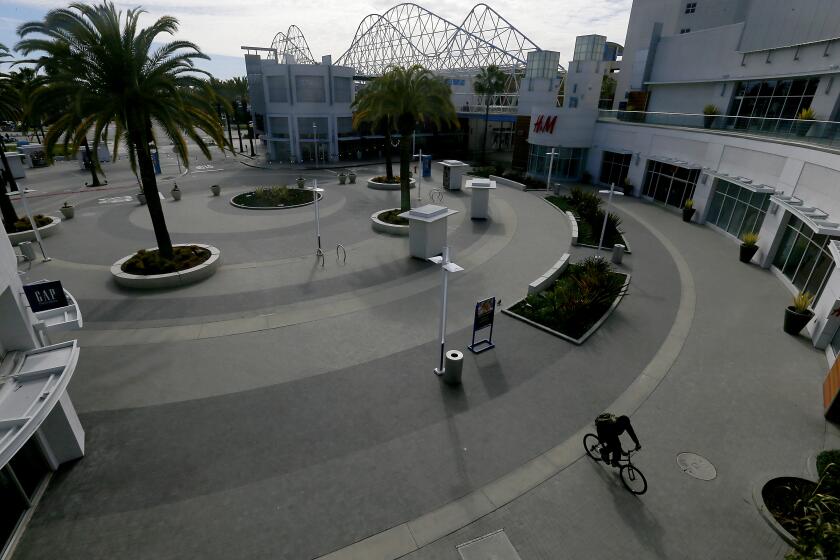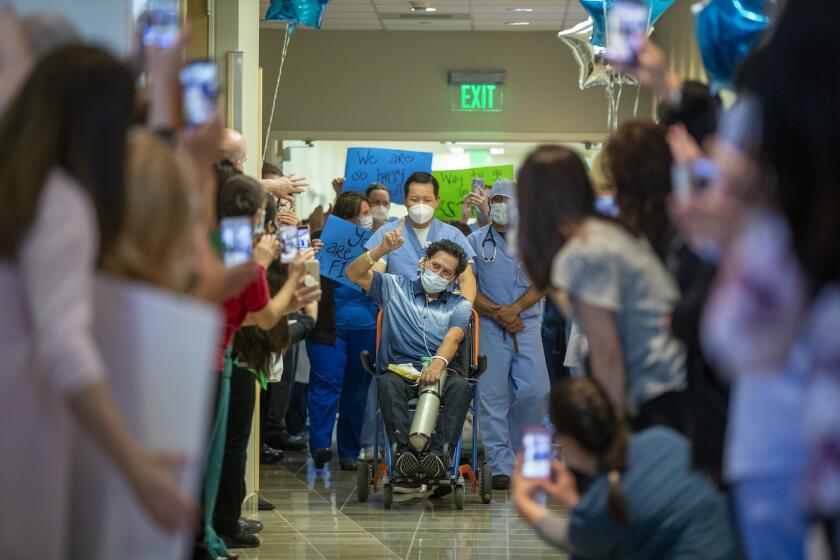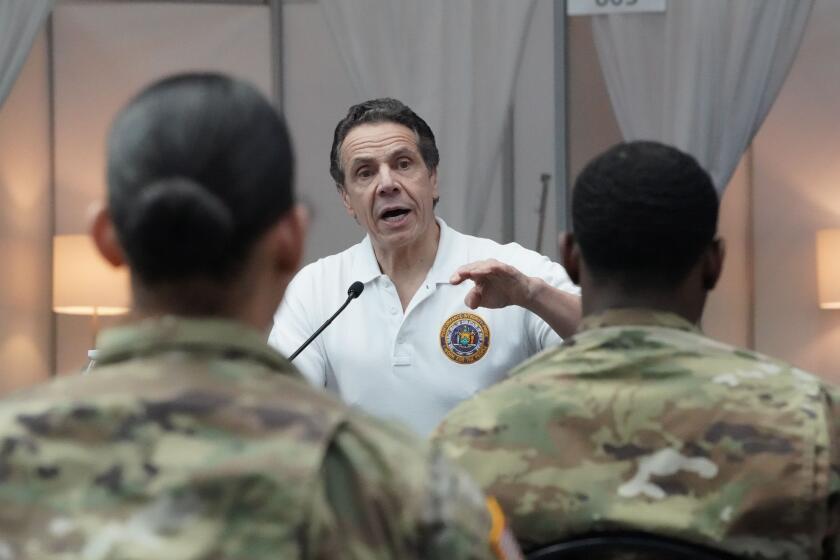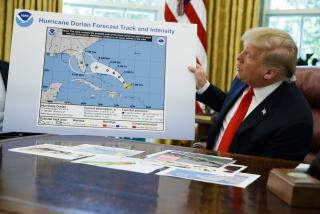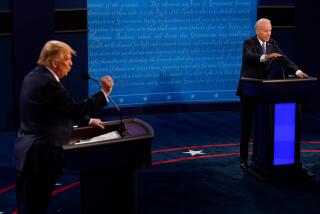News Analysis: The coronavirus crisis will change America in big ways. History says so
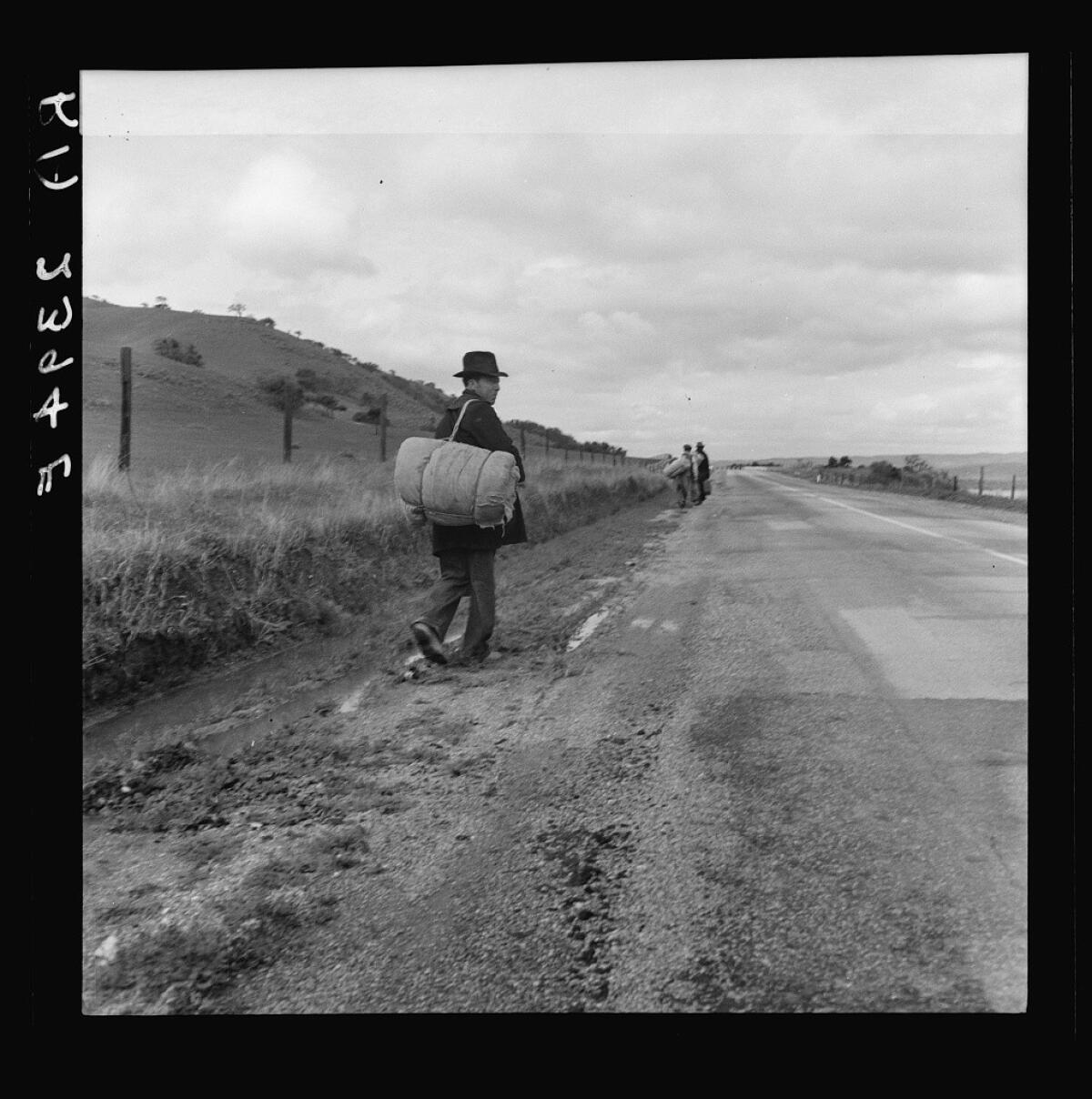
- Share via
The Social Security check that arrives each month. The unemployment benefits that help tide workers over between jobs. The security lines snaking through airports, back when millions of Americans were still flying.
They are so deeply embedded in today’s society that we take them for granted.
All were the product of crises like the COVID-19 pandemic, which made sweeping changes — political measures that once seemed politically untenable — suddenly viable and even necessary.
Forecasts for economic damage from the coronavirus pandemic have quickly turned much darker – both for the depth and duration of the damage.
It is too soon to say, before this crisis has crested, how the pandemic will shape what becomes America’s new normal.
Changes to strengthen the public healthcare system, making it nimbler and better fortified, seem likely. There may be new laws to address the disparity between salaried employees who enjoy paid benefits and those who rely on freelance work to get by. Perhaps scientists and other experts will be more closely heeded when they speak of climate change and its dire effects.
But there is no doubt, given experience, that the political effects of the coronavirus outbreak will be transformative and long-lasting. Not necessarily in partisan terms — those red-versus-blue lines seem too deeply entrenched — but rather in the way government touches our everyday lives.
“Crises breed change,” said Allan Lichtman, a historian at American University.
These are some of the unusual new scenes across the Southland during the coronavirus outbreak.
To understand why, it helps to go back to the country’s founding.
After throwing off a monarchy, the architects of the Constitution were deeply wary of creating a strong, centralized seat of power. They designed a federal government intended to make it difficult — sometimes maddeningly so — to bring about bold changes on a national scale.
“In framing a government which is to be administered by men over men, the great difficulty lies in this: you must first enable the government to control the governed,” James Madison wrote in the Federalist Papers, a series of essays promoting ratification of the Constitution. “And in the next place oblige it to control itself.”
Add to that structural impediment the human tendency to put off difficult choices and the result is institutional inertia that tends to favor the political status quo.
Crises breed change
— Allan Lichtman, American University historian
“It takes something pretty dramatic to shake things up,” said David Kennedy, a Stanford University professor who has written deep accounts of the Great Depression and World War II, two of the most seismic events in American history.
Take Social Security, which may be the most popular program born of the Depression and the vast expansion of the federal government that followed.
An “old age” pension was part of the 1912 Progressive Party platform, the goals laid out by Bull Moose candidate Theodore Roosevelt in his unsuccessful bid to reclaim the White House. Yet it wasn’t until August 1935, after the economic ravages of the country’s near-collapse left millions of Americans destitute, that President Franklin D. Roosevelt signed the Social Security Act into law.
“It wasn’t like the idea was born in crisis,” Kennedy said, “but implementation of it became more feasible and urgent.”
Other crises had such horrific consequences they, too, overrode the inclination toward governmental inaction.
The outbreak of World War II underlined the dangers of America’s insular foreign policy. The 9/11 attacks highlighted weaknesses in the country’s domestic security programs. The Great Recession showed, again, the dangers of unbridled financial speculation.
The result were remedies that compensated for those failings and, in some instances, overcame long-standing political intransigence: the network of international alliances forged to prevent a third World War; creation of the Homeland Security Department — as well as a vast government surveillance program and those cumbersome security lines — to thwart further hijackings; regulations to provide stronger financial oversight and put a brake on risky investments.
“If we think there are things that could have been done better and should have been done better, then we tend to make changes,” said Roger Porter, a Harvard business and government professor, who served as a domestic policy advisor to President George H.W. Bush.
Put another way, “What crises do is they open up space,” said Julian Zelizer, a Princeton political scholar. “They don’t end partisanship, but they push aside some of the impediments to big changes. They create a huge public demand for someone to do something.”
In fighting the coronavirus pandemic, the U.S. is going to live and die by its decentralized public health system.
In the shorter term, at the ballot box, political crises inevitably result in a voter referendum on the one man — and they have all been men — that Americans look to for leadership, the president of the United States.
Some fare better than others. Abraham Lincoln was reelected during the Civil War. Herbert Hoover was tossed from the White House amid the Great Depression. Roosevelt was returned to office three times during the Depression and World War II.
(The major tumult surrounding Sept. 11 and the Great Recession had largely receded for Presidents George W. Bush and Obama, respectively, by the time they faced voters. Both won second terms.)
Americans will render their verdict on President Trump in November, and the results, like the course and duration of the pandemic, are unknowable at this time.
But whatever happens on election day, changes will come to America and they will endure well after the pandemic has ended.
It is one certainty in these gravely uncertain times.
More to Read
Get the L.A. Times Politics newsletter
Deeply reported insights into legislation, politics and policy from Sacramento, Washington and beyond. In your inbox three times per week.
You may occasionally receive promotional content from the Los Angeles Times.

